When it comes to fashion, finding the right brands that align with your style, values, and budget can feel like a never-ending quest. In the expansive world of women’s fashion, identifying the best clothing brands for women is crucial for building a versatile and stylish wardrobe. Whether you’re in search of luxury staples, sustainable options, or affordable finds that don’t compromise on quality, the right brands can transform your fashion game.
Understanding Women’s Fashion Needs in 2023
In 2023, the modern woman’s wardrobe is expected to be as multifaceted as her daily life. With an emphasis on comfort, versatility, and self-expression, women demand apparel that can seamlessly transition from work to leisure without compromising on style or quality. The fast-paced nature of today’s lifestyle requires garments that can withstand wear and tear while also being adaptable to various social settings and personal preferences. Ethical production and sustainable materials are increasingly important, with shoppers prioritizing brands that reflect their environmental and social values.
This year, the trend leans towards pieces that not only enhance the individual’s style but also contribute positively to the broader narrative of responsible fashion. The call for inclusivity in size and representation continues to shape the industry, urging brands to cater to a diverse array of body types and identities, ensuring every woman can find her unique voice within the world of fashion.
The Rise of Sustainable Fashion Brands
Sustainable fashion is becoming increasingly vital within the industry, championing the movement for environmental responsibility. Brands such as Reformation and Stella McCartney are at the forefront, setting an example with their commitment to eco-friendly practices. These pioneers in sustainable fashion utilize materials that are less harmful to the planet, engage in ethical labor practices, and support initiatives aimed at reducing fashion’s carbon footprint.
Their efforts make it easier for consumers to make choices that are not only stylish but also kind to the environment. By focusing on durability and timeless design, sustainable brands are redefining luxury and everyday wear, proving that fashion can be both beautiful and conscientious. Their success underlines a growing consumer desire for apparel that aligns with a more sustainable lifestyle, encouraging the wider fashion industry to take note and follow suit.
Luxury Fashion Brands That Never Go Out of Style
For those who seek the epitome of elegance and superior craftsmanship, esteemed luxury brands like Chanel, Louis Vuitton, and Gucci stand as beacons of timeless style. These venerable names in the world of high fashion offer an array of iconic pieces that not only elevate any wardrobe but also represent a wise investment. The allure of these luxury brands lies not just in their prestigious heritage but also in their ability to meld tradition with contemporary design, ensuring their offerings remain both relevant and coveted across generations.
The craftsmanship behind each piece speaks volumes, promising longevity and enduring appeal. While the investment in luxury fashion may be significant, the payoff is a collection of garments and accessories that resist the fleeting nature of trends, solidifying their status as indispensable elements of a discerning wardrobe.
Affordable Fashion Brands That Offer Quality and Style
In today’s market, striking a balance between cost and quality is essential for shoppers who prioritize both style and value. Recognized brands such as Uniqlo, Zara, and H&M are leading the charge by offering fashion-forward pieces at prices that won’t break the bank. These brands have become synonymous with bringing runway trends to the everyday closet, allowing style enthusiasts to experiment with the latest looks without making a substantial financial commitment.
Each of these brands is dedicated to producing a diverse array of garments that cater to a wide audience, ensuring there’s a style to suit every preference and occasion. From the basics that form the backbone of any versatile wardrobe to statement pieces that capture the season’s spirit, shoppers can trust these brands to provide options that are both affordable and of commendable quality. This democratization of fashion not only makes style more accessible but also encourages consumers to explore their personal style in depth, without the constraint of high price tags.
Activewear Brands for the Modern Woman
In an era where health and fitness have become paramount in our daily lives, activewear has emerged as a crucial element of the modern woman’s wardrobe. Brands like Lululemon, and Adidas stand out for their exceptional ability to merge high-performance technology with trend-setting designs. Lululemon is renowned for its premium yoga and running gear, which promises both comfort and style.
We offers a wide range of athletic apparel that supports dynamic movement and versatility, catering to various forms of exercise from Pilates to high-intensity training. Adidas, with its long-standing heritage in sportswear, continues to innovate with designs that are both functional and fashion-forward, appealing to athletes and style mavens alike.
These brands have carved a niche by prioritizing the need for activewear that is durable, stylish, and supportive, enabling women to perform their best while looking great. With offerings that range from moisture-wicking fabrics to sleek silhouettes that flatter every body type, these brands are at the forefront of the activewear movement, proving that performance gear can be as chic as it is practical.
The Best Online-Only Fashion Brands
The digital landscape has ushered in a new era of fashion retailing, spotlighting online-only brands that have mastered the art of delivering trend-setting styles directly to consumers. Notable among these is ASOS, a global fashion powerhouse offering an extensive range of apparel that caters to diverse fashion tastes and sizes.
Similarly, Fashion Nova has carved out a niche with its eye-catching and inclusive designs that appeal to a broad demographic, quickly becoming a favorite among social media influencers and fashion enthusiasts alike. Revolve stands out for its curated collection of high-end and emerging brands, making it a go-to platform for discovering unique pieces that are on the cutting edge of fashion.
These brands leverage the power of the internet to provide a seamless shopping experience, from personalized recommendations to hassle-free returns, making it easier than ever for consumers to find their perfect style fit. The success of these online-only entities underscores a shift towards convenience, variety, and accessibility in the fashion industry, catering to the modern shopper’s desire for a personalized and comprehensive approach to online retail.
Brands Championing Size Inclusivity
In the realm of fashion, the movement towards embracing every body type has gained remarkable momentum, with certain brands paving the way for size inclusivity. Among these trailblazers, Universal Standard sets an exemplary standard, offering an extensive range of sizes that cater to a wide spectrum of body types, ensuring every woman can find her perfect fit. Eloquii is another brand that celebrates diversity in female silhouettes, specializing in stylish, high-quality apparel designed specifically for the plus-size market.
Meanwhile, Savage X Fenty by Rihanna has emerged as a powerful advocate for inclusivity, not only in size but also in representing a variety of skin tones and body shapes, challenging the industry’s norms and empowering women to feel confident in their own skin. These brands are not just selling clothes; they are fostering a culture of acceptance and body positivity, making significant strides towards a more inclusive fashion landscape where every woman’s body is celebrated and accommodated.
The Rise of Direct-to-Consumer Fashion Brands
The direct-to-consumer (DTC) model is revolutionizing the retail landscape, allowing brands to engage directly with their customers without the need for traditional retail intermediaries. This innovative approach offers a slew of benefits, including enhanced transparency regarding production processes and pricing, as well as the ability to offer high-quality products at more accessible price points.
DTC brands such as Everlane are celebrated for their commitment to ethical manufacturing and radical transparency, providing consumers with detailed information about the cost and production of each item. Similarly, Warby Parker has disrupted the eyewear industry by combining quality, design, and social responsibility at a fraction of the price of conventional designer glasses. These brands leverage online platforms to connect with their audience, offering a personalized shopping experience that traditional retail often lacks.
By prioritizing customer feedback and incorporating it into product development and service improvement, DTC brands are not just selling products; they’re building communities and fostering loyal relationships with their consumers. This shift towards a more direct and personal engagement with customers exemplifies a broader trend in consumer goods, highlighting a future where the distance between brands and consumers continues to narrow.
The Comeback of Vintage and Thrift Fashion
The resurgence of vintage and thrift fashion marks a stylish nod to eco-conscious shopping and a desire for distinctiveness in wardrobe choices. Platforms and The Real, along with myriad local thrift stores, have become hotspots for fashion-forward individuals seeking out rare, vintage gems. These spaces not only offer a sustainable alternative to fast fashion but also enable shoppers to curate a unique personal style that stands out from mainstream trends.
By embracing the character and history embedded in vintage pieces, consumers are not just making a fashion statement but also contributing to a cycle of reuse that benefits the environment. This trend toward second-hand shopping underscores a shift in consumer values, where the appeal of owning one-of-a-kind items and the positive environmental impact of purchasing pre-loved clothes are intertwined. As this movement gains momentum, vintage and thrift finds are being celebrated not only for their aesthetic appeal but also for their role in promoting sustainability within the fashion industry.
The Future of Women’s Fashion Brands
As the landscape of women’s fashion continues to evolve, brands that anticipate and cater to the dynamic needs of their consumers will lead the way. With an emphasis on ethical manufacturing, environmental sustainability, and technological innovation, these brands will redefine the essence of modern fashion. The integration of AI and virtual reality into shopping experiences, personalized clothing options, and a stronger online presence will cater to the digital-native generation.
Additionally, the commitment to size inclusivity and diversity will not just be a trend but a standard that shapes brand strategies and collections. Embracing the circular economy through upcycling, recycling, and promoting longevity in clothing will also become more prevalent, reflecting a growing consumer demand for responsible consumption.
In essence, the successful brands of the future will be those that not only offer aesthetic appeal and quality but also embody the values and expectations of a socially and environmentally aware customer base, marking a new era of fashion that is inclusive, innovative, and intentional.

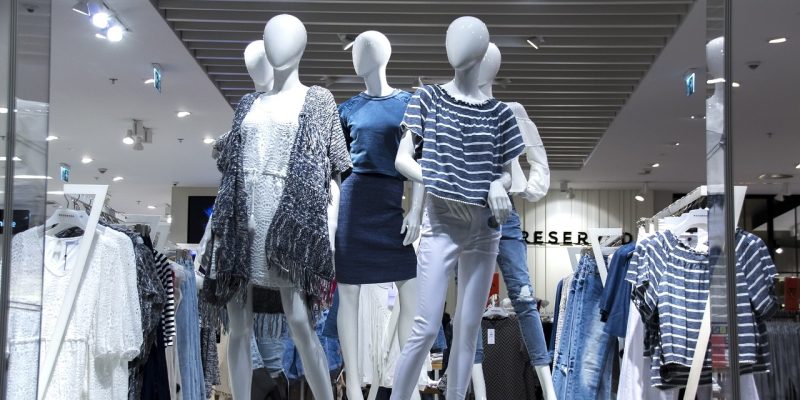

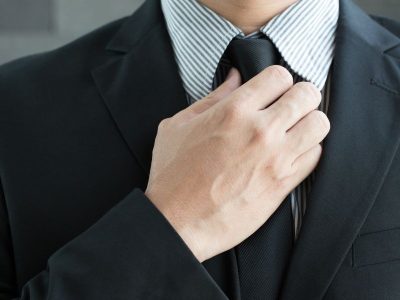
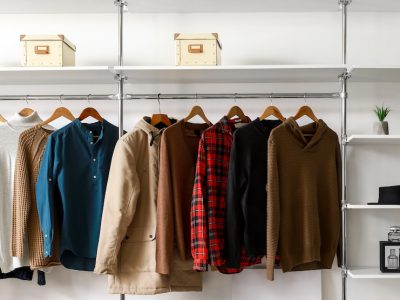
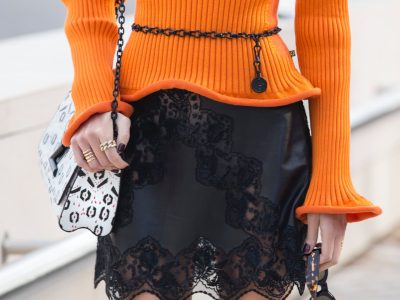
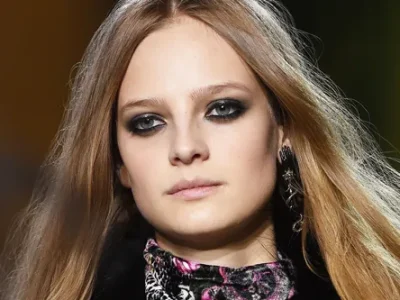
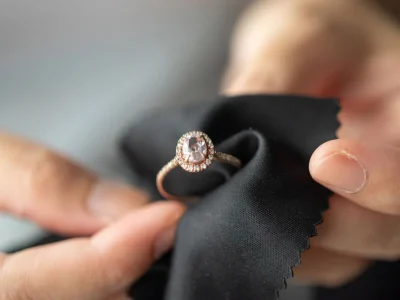





Comments